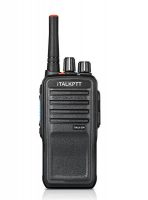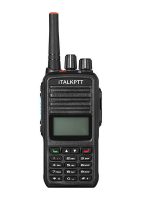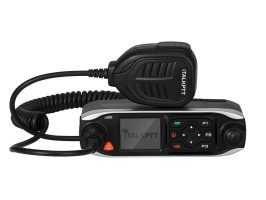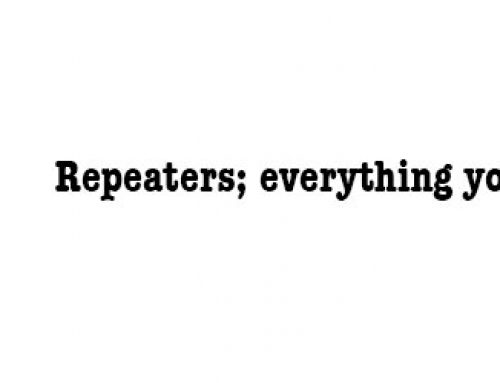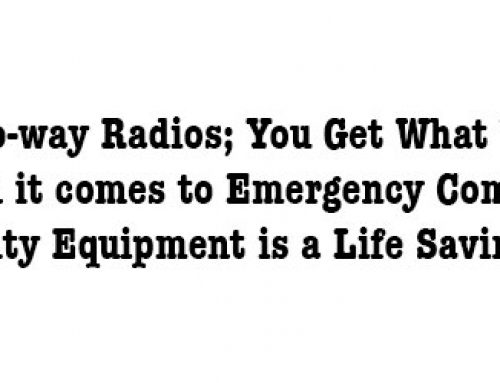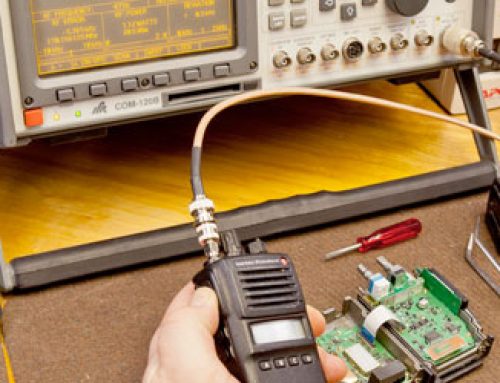This article is to help you think through the confusing process of buying two-way radios for your security guard teams. The options you should be considering and the features that are available in the market today. It is our hope to give a clear picture on what you can do or be thinking about before you make a large investment.
If you are confused about anything in this article please feel free to contact us, we would be more than happy to help. We have been in the two-way radio industry for over 30 years and have helped security firms large and small in getting the right radio product for their unique needs.
There are six areas of focus that should be considered before you purchase radios for your security guards:
-
Radio Coverage
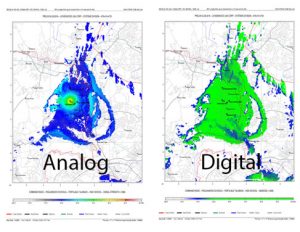 The marketing on a lot of two-way radio products out there can be deceptive when it comes to coverage claims. There are also many factors that affect radio coverage. Factors like the makeup of the buildings (heavy concrete & steel) the radios will be operating in, the distance between sites, the elevation of the areas you would like to communicate, are using one shared frequency like itinerant frequencies, and the radio band you are considering using.
The marketing on a lot of two-way radio products out there can be deceptive when it comes to coverage claims. There are also many factors that affect radio coverage. Factors like the makeup of the buildings (heavy concrete & steel) the radios will be operating in, the distance between sites, the elevation of the areas you would like to communicate, are using one shared frequency like itinerant frequencies, and the radio band you are considering using.The first question you should be asking is, will the two-way radios you are considering give you the coverage you require?
- Live testing should be done before buying a new radio at the facility that the guards will be patrolling. Gauging radio coverage is tough without actual live signal testing or engineered radio coverage studies.The radio dealer you are working with should be able and willing to provide demo radios for you to test.If the system is complicated to provide coverage, meaning the range of operations will be over 1 ½ to two miles and a repeater is required, some dealers can also provide live repeater demos and radio coverage studies.To attain the radio coverage you require will additional equipment need to be added like repeater systems? Is there another way like (POC) Push to talk over cellular or WiFi instead of using a repeater system?
Will you be able to communicate with your guards when off-site?
- Knowing a radio system works before you purchase will give you peace of mind, save you money in the long run, and help when training your guards on how to properly use the system. When you know the system works it stops a lot of nonsense complaints by troubled staff.Some radio systems offer a way through the internet and IP addressing so that on your cell phone, or an actual radio, you’re never out of reach to your security guards.
- Easy to use
If the product you choose is too complicated to operate, the guards will get confused and important calls may be missed. Worse yet the guards may be intimidated by the new equipment.
When testing the radios, ask your dealer how simple they can program the radio so that it limits the number of complicated actions a guard will need to take to communicate on the system.
- The ability to know who is calling on the radio system with radio identifiers.
Modern two-way radios have the ability to identify who is calling on the system this is called a radio identifier. Come up with a unique way of naming your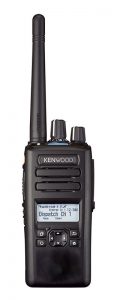 radios, and have a spreadsheet for the dispatcher to have at a glance to know who has which radio. If you have the budget to give each guard their own radio. Consider using the guard’s last names as part of this radio identifier or their badge numbers like the police departments use.When a radio transmits on the system this radio identifier will display on radios with a screen, making it easy to know who is calling and possibly from where it’s calling from. Depending on how you named the radio and the system you are using.
radios, and have a spreadsheet for the dispatcher to have at a glance to know who has which radio. If you have the budget to give each guard their own radio. Consider using the guard’s last names as part of this radio identifier or their badge numbers like the police departments use.When a radio transmits on the system this radio identifier will display on radios with a screen, making it easy to know who is calling and possibly from where it’s calling from. Depending on how you named the radio and the system you are using.
- Radio tracking & user accountability systems
Are there GPS tracking and accountability tools baked into the walkie talkie you are considering for your security guards?What about guard tracking software, can your radios integrate with it?We have a product from iTalkppt that can do both of these things really well.
When a guard is patrolling you can see where they are in real-time via a GPS feed, and track where they have been over a time period of your choosing. It’s a guard tracker.
All the radio calls are also recorded to the cloud for playback at a later date for training, proof of request for help or lack of communication back to dispatch.
The iTalkppt radios also have the ability to read cheap NFC (near field chip) chips while the guard is patrolling. Once the chip is scanned it forces the guard to take specific actions while at this NFC point on patrol. While in this mode the radio will describe the actions you would like the guard to take. Actions like:
- Did you make sure the doors were locked at the northeast entrance mechanical room? Yes/NOThe radio will actually ask them these questions and on the radio they will have to acknowledge the action taken, by pressing a button on the radio.There is a web portal for the admins/supervisor to get a detailed report of these actions over time.
- These NFC chips can also be used for clocking in and out for time card purposes at the starts and ending of shifts.
- Geofences can also be created to see if your guard left their post and when they re-entered their designated patrol areas. All this data is captured in the admin web portal and alerts.
- Panic Alerting – Do the radios you are considering have a panic button alerting feature?
Even with the best training or efforts sometimes things can escalate to a dangerous and serious level. If the guard can get the panic alerting button and are able to press it they know help is coming their way.
This also makes sense in medical emergencies for the guard or the folks they are serving to keep safe but pressing the button and then performing medical actions on the hurt person.
When the panic button is pressed and held, alarm sounds will go off on the radios monitoring the radio channel and the radio identifier of the radio that triggered the alert will display on radios with a screen.
If the dispatching software is deployed the alert will also sound alarms on the software along with the radios ID and its location.
- Security of the radio calls, are they encrypted?
The majority of two-way radios on the market today have some form of basic encryption in them, sadly a lot of radio dealers do not activate these call security features into the radios as a standard practice.At the most basic level a lot of radios have the feature called voice scramble and many in the digital realm have encryption that just needed to be turned on when the radio was programmed and set up.When you encrypt or scramble your radio calls it’s one more obstacle for the bad guys to overcome, and when they are encrypted it’s hard for the bad guy to overcome without the right encryption keys.
Radio Accessories for silent operations or speaker microphones?
Does the radio product you are considering offer a range of accessories to meet your guards needs?The following should be taken into consideration before your purchase in a new radio system.
- Durable but lightweight cases to protect the radio investment you just made?
- Audio accessories like earpieces that can comfortably fit in the ear for silent operations?
- Audio accessories like Bluetooth speaker microphones so the cords can’t be used as weapons against your guards?
- How durable are these accessories and what are their costs?
- Cost to operate
The following should be considered before making a major investment in radios for your security team.
- How much will the investment need to be to get the radio coverage your job requires?
- Will the radio system require an FCC License to operate?
The majority of UHF & VHF radio solutions out there require an FCC license to operate your radios legally in the USA.
To get the required radio coverage will you need to implement a repeater system?
- At the sites, you are asked to patrol how difficult will it be to install such a system on properties you may not own?
- Are there restrictions on where a repeaters antenna could be installed?
- How flexible will this radio system be?
- Will it work for multiple sites or just one particular site.
- Will you be able to communicate with your guards if you are not onsite?
- What’s the replacement cost if a radio is lost, stolen or broken?
- Are there ongoing fees for service or FCC licensing?
- Does your dealer offer leasing or financing of the system?
It is our hope that this article has given you a lot of food for thought, and we would love to work with you to find the best solution to your security operations needs.
If you are interested in working with us, please fill out the form below, and someone from our team will reach out shortly to answer any questions you may have.
Command Radio Communications Inc has been in business for over 30 years and is founded by a retired Police Deputy Chief and FBI National Academy graduate.
We understand the challenging environments the security industry faces, and we would like to help you make the best radio decision for your firm.

